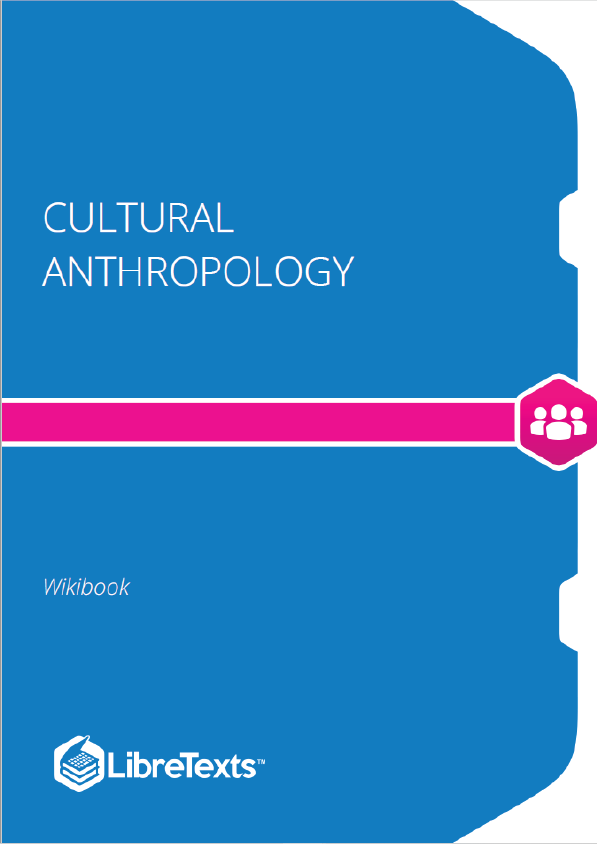Anthropology is the holistic and scientific study of humanity. Cultural Anthropology focuses on contemporary human cultures, their beliefs, myths, values, practices, technologies, economies and other domains of social and cognitive organization. The detailed descriptions of culture, or ethnography, are based upon a methodology of primary data collection through participant observation with living human populations.
This textbook aims to provide an introduction to the field of cultural anthropology. The initial chapters introduce the concept of culture and review the historical, theoretical, and methodological influences on the field. Chapters four through twelve discuss the major domains of the study of culture; symbolism, communication, ritual, production, healing, rights, reproduction, kinship, conflict, and globalization. These chapters provide ethnographic examples (both etic and emic perspectives) and case studies to support the central concepts in each chapter. Additional case studies are available via the Anthrobase website and others can be developed in wikibook format and integrated through links in this book.
What is Anthropology?
Anthropology is the scientific study of human beings as social organisms interacting with each other in their environment, and cultural aspects of life. It is a scholarly discipline that aims to describe in the broadest possible sense what it means to be human. Anthropologists are interested in comparison. To make substantial and accurate comparisons between cultures, a generalization of humans requires evidence from the wide range of human societies. Anthropologists are in direct contact with the sources of their data, thus field work is a crucial component. The field of Anthropology, although fairly new as an academic field, has been used for centuries. Anthropologists are convinced that explanations of human actions will be superficial unless they acknowledge that human lives are always entangled in complex patterns of work and family, power and meaning.
Five Disciplines of Anthropology
Applied Anthropology: Includes the fields of Applied Medical Anthropology, Urban Anthropology, Anthropological Economics, Contract Archaeology and others. Applied anthropology is simply the practice of applying anthropological theory and or methods from any of the fields of Anthropology to solve human problems. For example, applied anthropology is often used when trying to determine the ancestry of an unearthed Native American burial. Biological anthropology can be used to test the DNA of the body and see if the DNA of the burial has any similarities to living populations. Medical Anthropology studies illness and healthcare within specific populations in order to form healthcare solutions that are tailored specifically to populations as well as identify unique areas of susceptibility within populations.
Archaeology: The study and interpretation of ancient humans or animals, their history, and culture. This is done through examination of the artifacts and remains that they left behind. An example of this is the study of Egyptian culture through the examination of their grave sites and the pyramids and the tombs in the Valley of Kings. Through the examination of pyramids and tombs in which these ancient humans lived in, much about human history and Egyptian culture is learned. Archaeology is an important study in improving knowledge about ancient humans, particularly, prehistoric or the long stretch of time before the development of writing.











